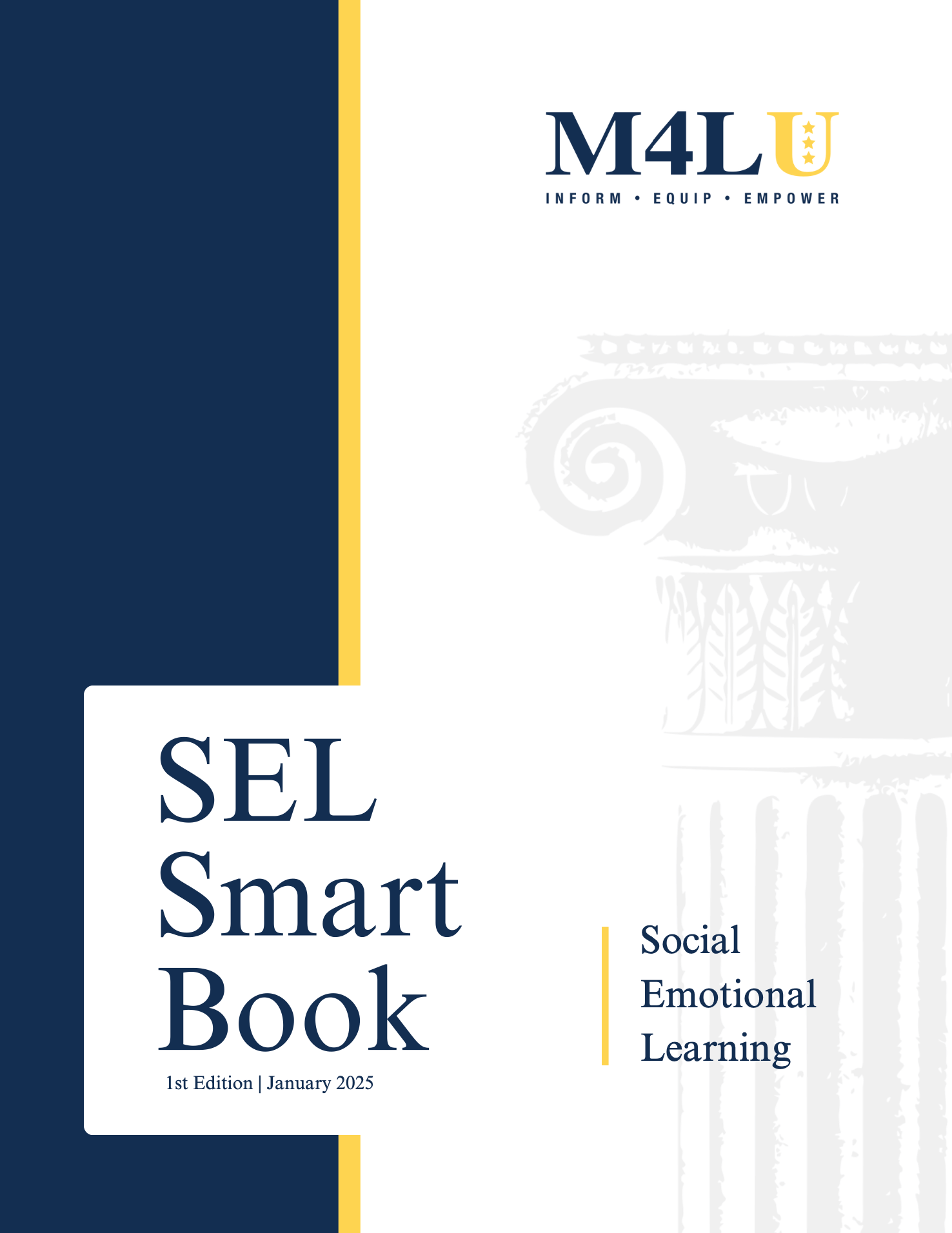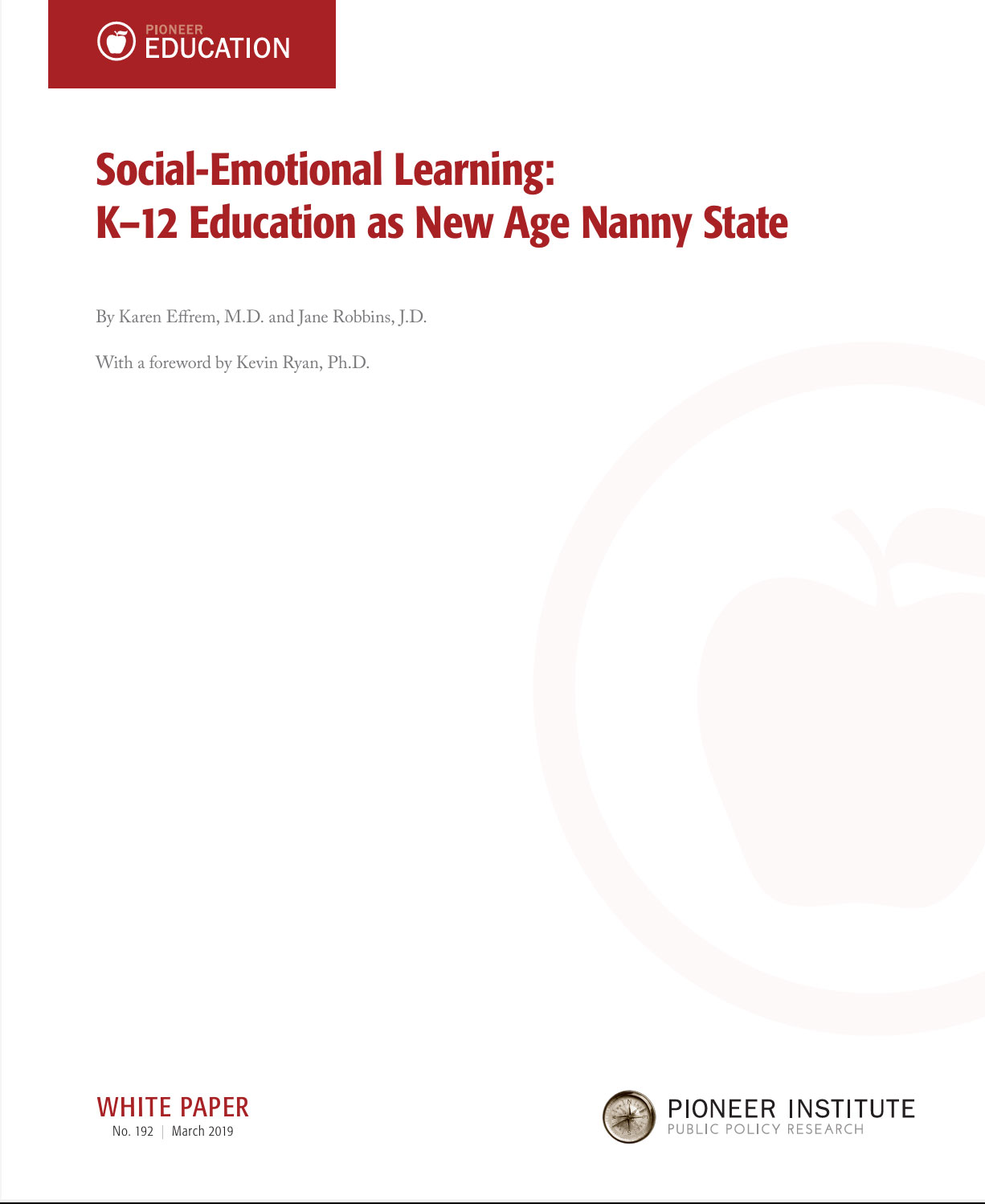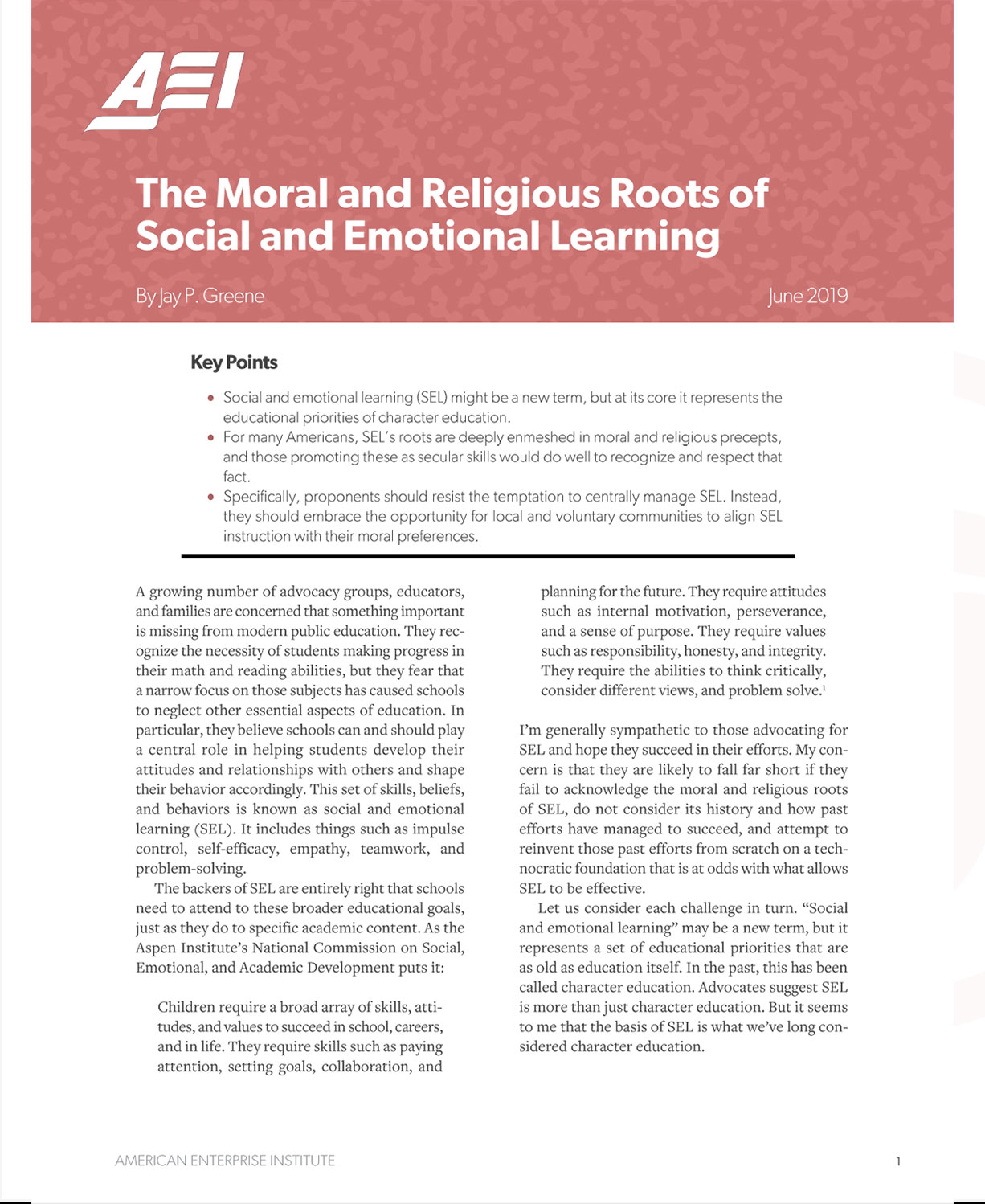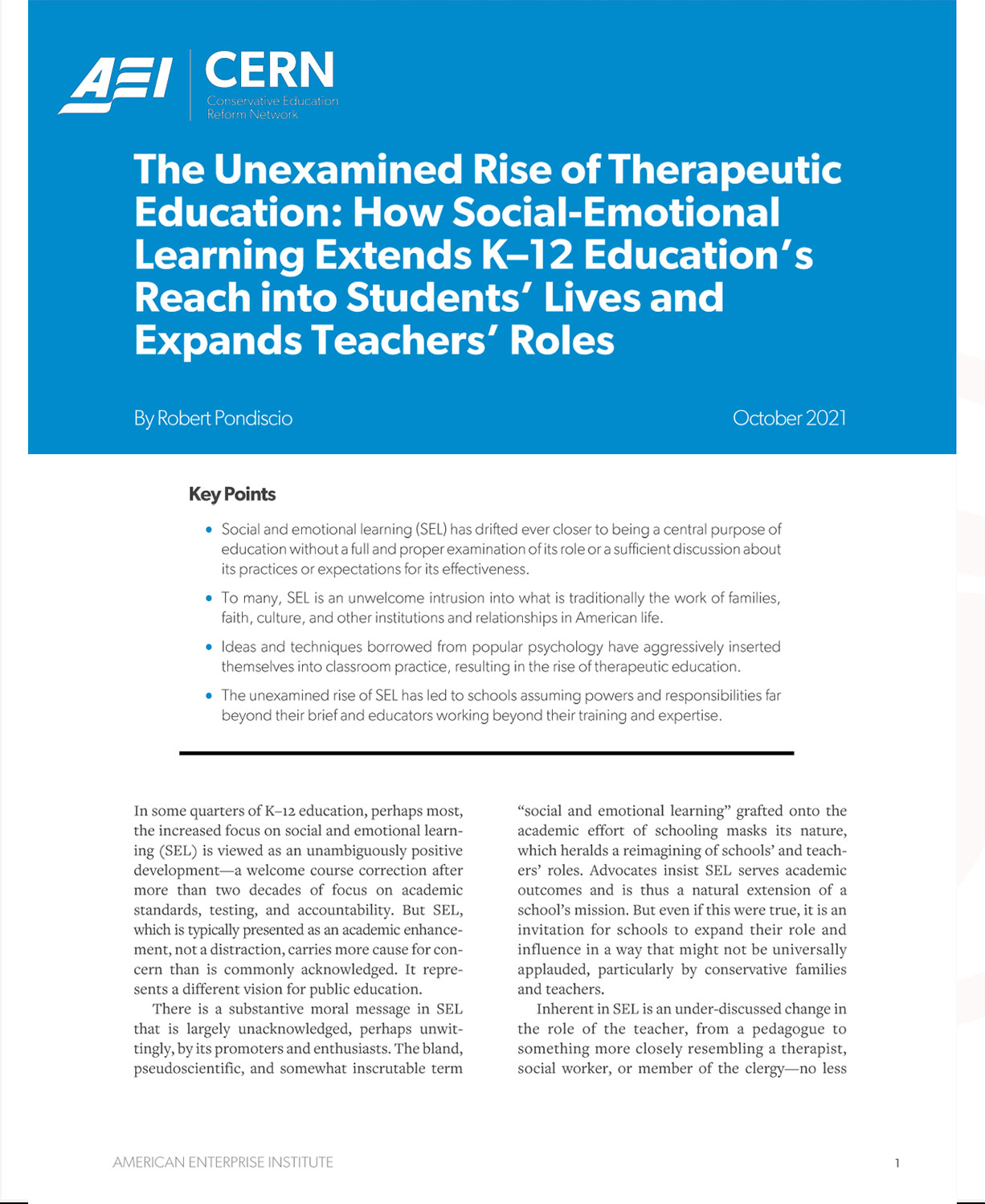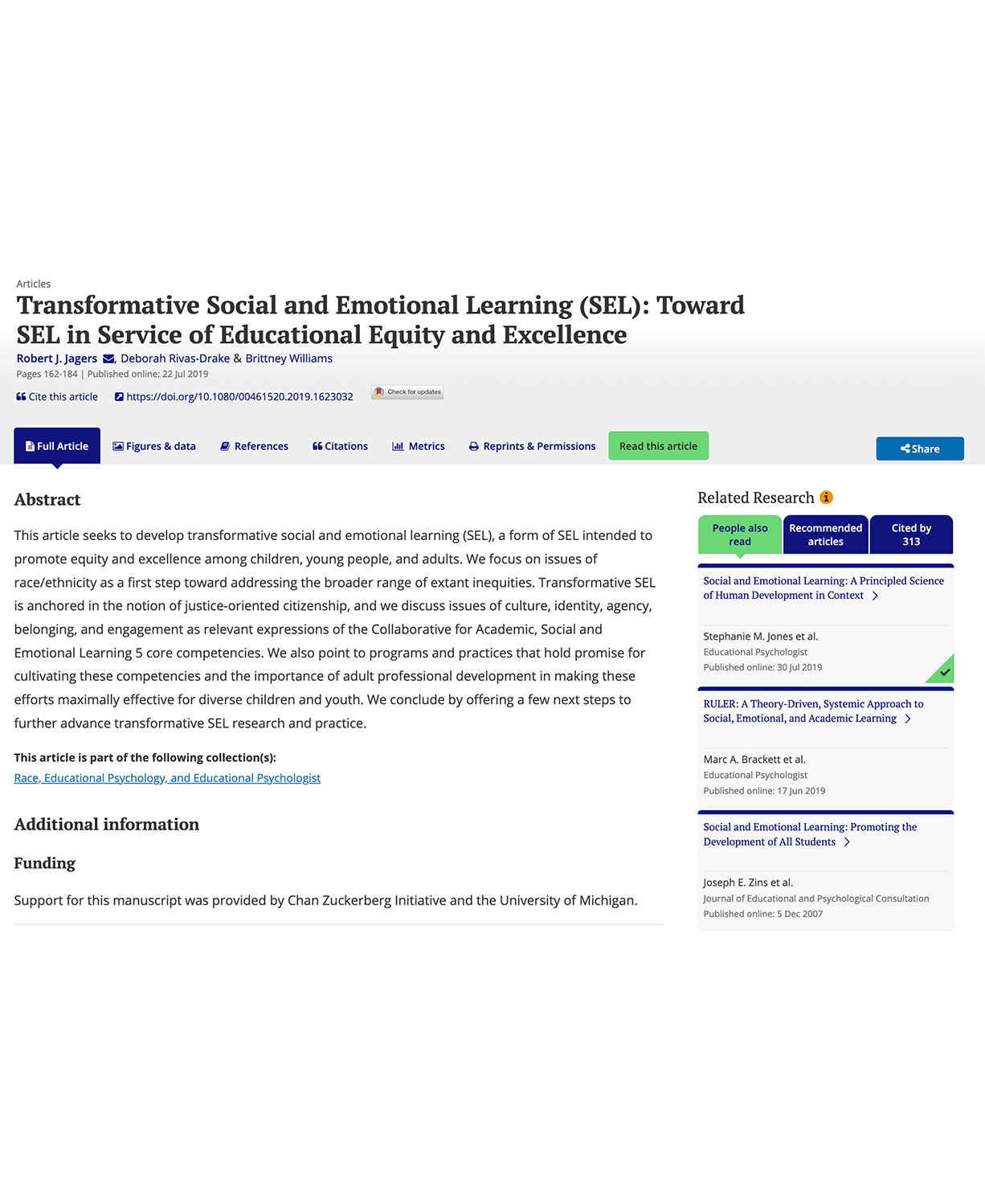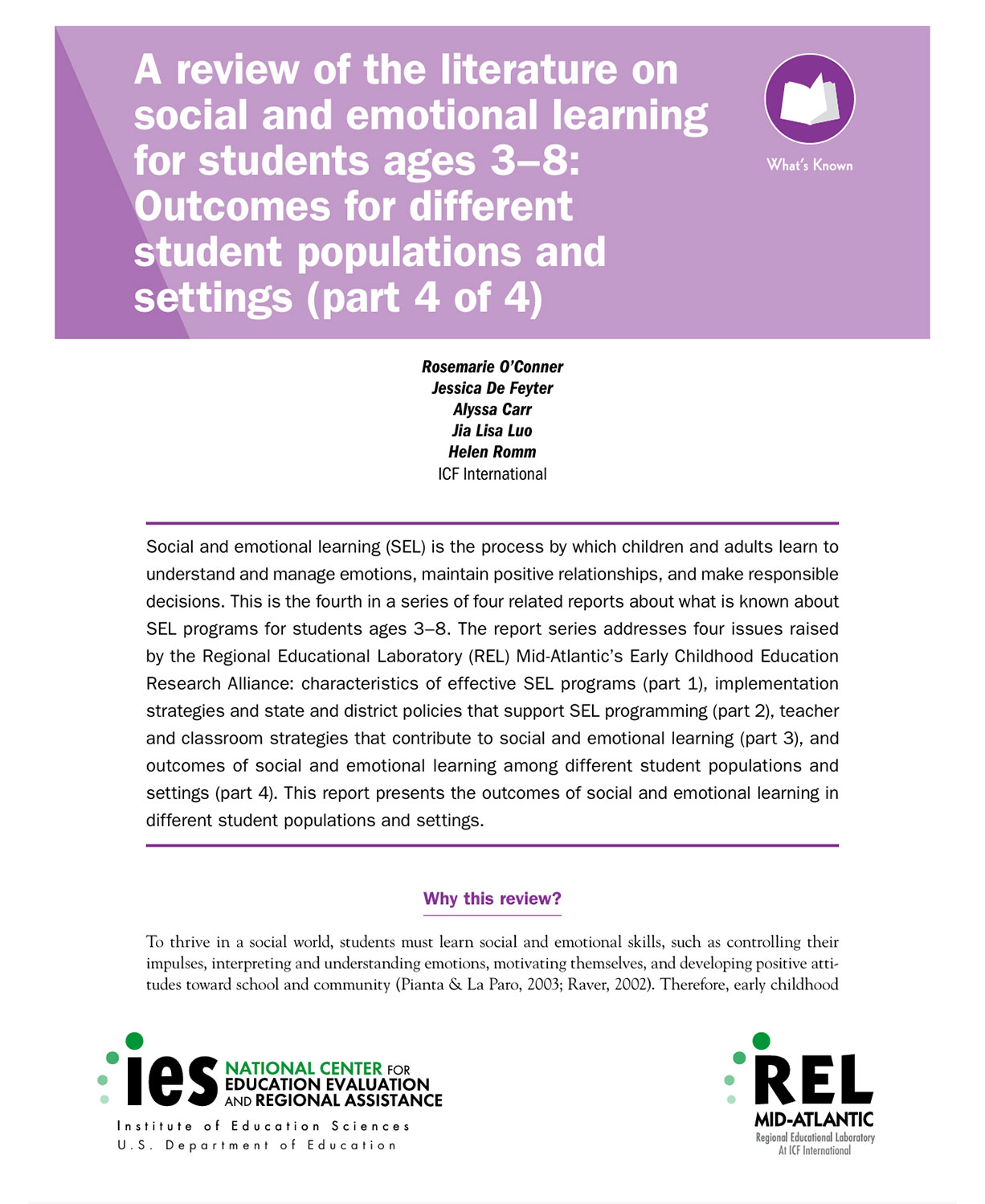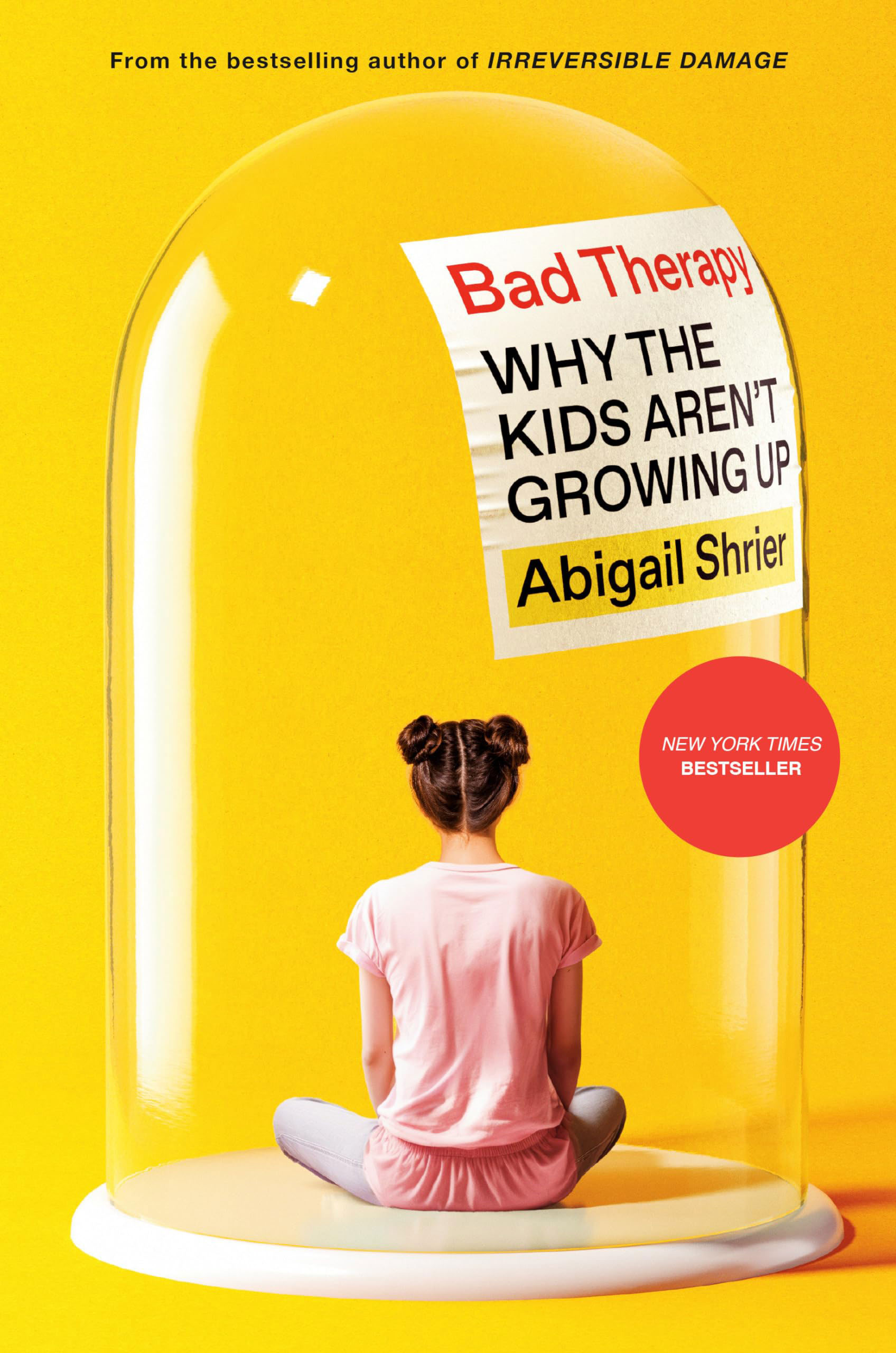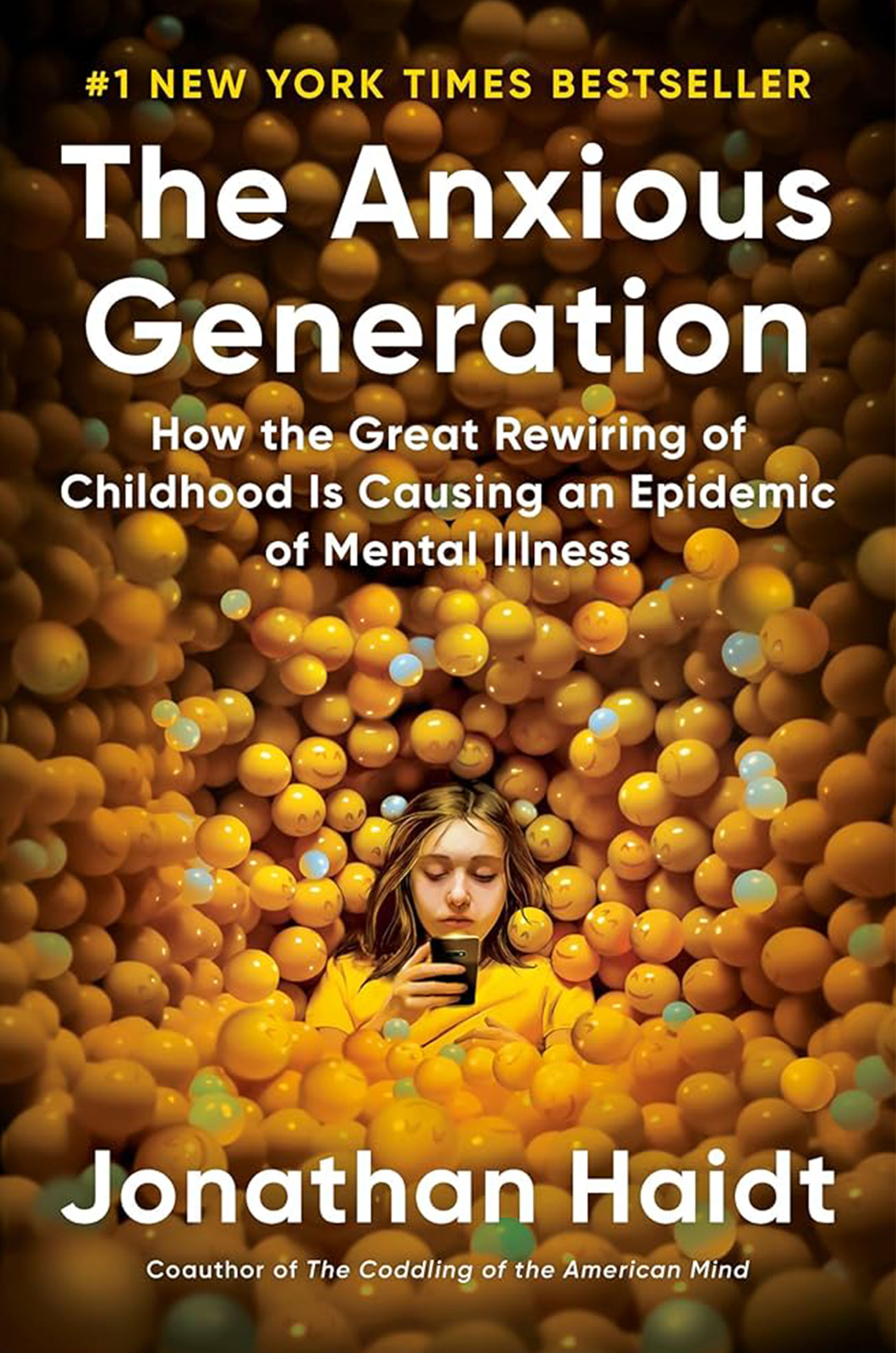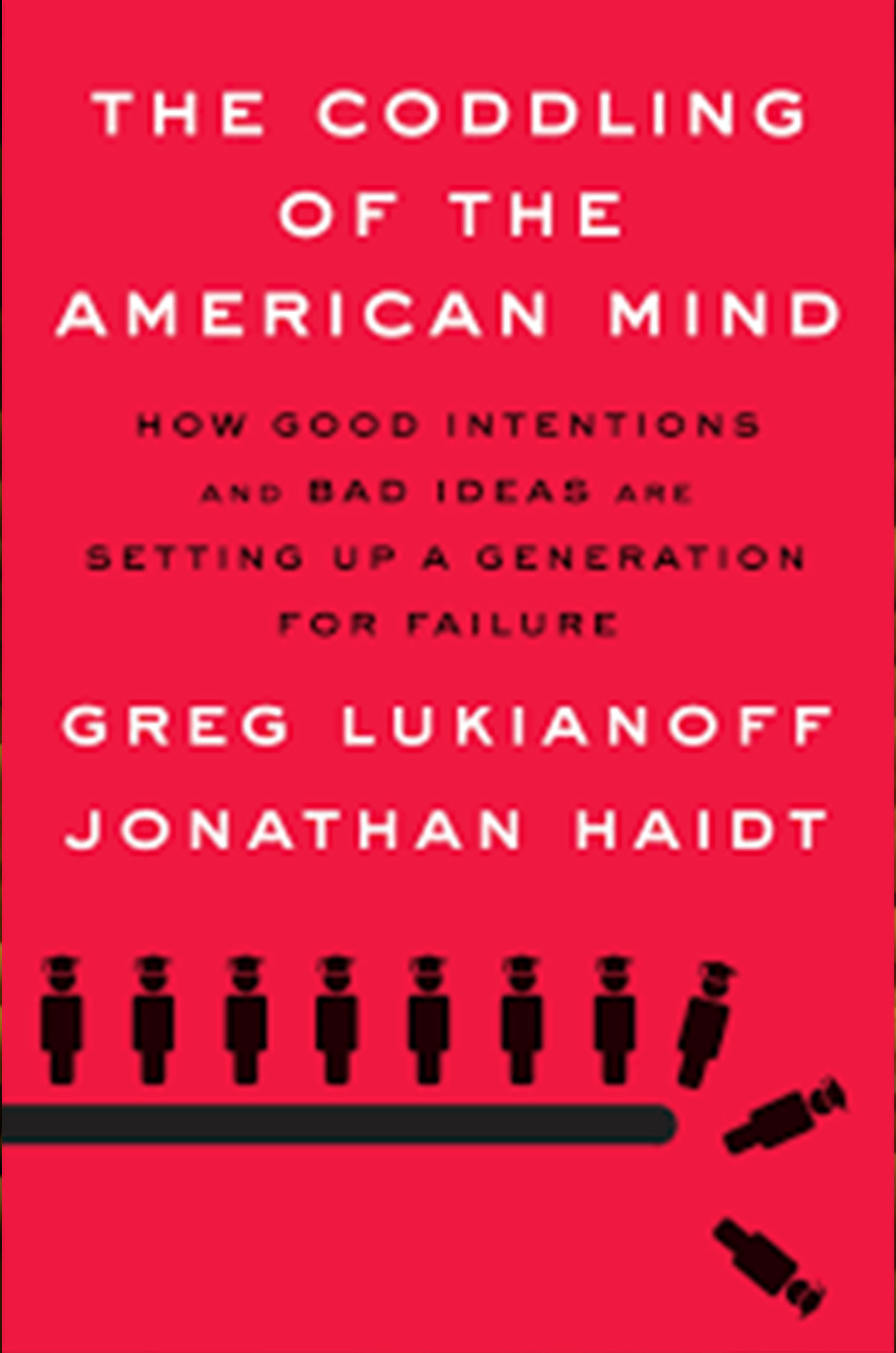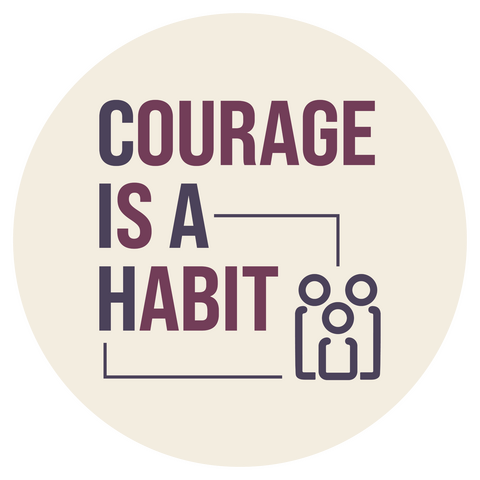SEL Toolkit
Whitepapers

Just as emotions themselves are often messy and hard to define, certainly SEL is just as difficult to pinpoint. Explaining SEL has been characterized as “trying to nail Jell-O to the wall.”
SEL is unquestionably a part of your student’s daily school experience, whether they are in Kindergarten or a senior in high school. And it largely flies under the radar.
How can a parent identify an issue and advocate for their child if simple definition of the issue seems too elusive? And perhaps that’s the whole point. When you visit CASEL.org, you’ll find a veritable word salad that numbs the reader into thinking it says something high-minded that perhaps only “mental health experts” will understand. Parents are intelligent, know their children better than any mental health worker, and can adeptly navigate the SEL word salads with but a little practice.
This “True or False Quiz” for Parents, Grandparents, and concerned citizens will test your knowledge about SEL in plain language – no decoder ring required! – and in the process, you may be able to nail some Jell-O to the wall. Good luck!
Related Articles
- Social and Emotional Learning by John Sailer (Civics Alliance)
- “Social Emotional Learning – Creating a Nation of “Nones” for the New American Religion” by Lisa Logan
- Let Them Eat Therapy by Matt Wolfson
- SEL Enriches Nonprofits and boosts administrators while pilfering taxpayer money
- Definition of Social Emotional Learning by Dr. James Lindsay
- SEL is Occultism & Indoctrination by Alex Newman (The New American, 2020)
- PRIMER: Social Emotional Learning – The Delivery Mechanism for Critical Race Theory
- Missouri Attorney General Subpoenas 7 School Districts Amid Worry Over Student Surveying by Juliette Fairley
- “The Data Mining of America’s Kids Should Be a National Scandal” by Asra Q Nomani and Erika Sanzi
- Social-Emotional Learning: The Insidious Teaching Tool You’ve Never Heard Of by Douglas Blair
- AG Garland’s son-in-law’s education company (Panorama Ed) promotes book featuring Bill Ayers by Houston Keene
- Trading Academics for Far Left Social Emotional Learning by Alex Newman
- “Eden: New Report Touts Social-Emotional Learning to Boost School Safety. But School Climate Surveys Tell a Very Different Story” by Max Eden
- “’Social Emotional Learning’ Standards Continue Ominous National March” by Karen Effrem M.D.
- “Meet ‘Social Emotional Learning’: New Education Fad, Same As The Old Fad” by Karen Effrem M.D. and Jane Robbins J.D.
- Schools Ditch Academics for Emotional Manipulation – Jane Robbins and Karen Effrem
- How Social and Emotional Learning Could Harm our Kids” by Ingrid Wickelgren
- Social and Emotional Learning: A Short History (Edutopia, 2011)
Recommended Podcasts

New Discourses Podcast
Ep 98: Dr. James Lindsay “Can We Trust Social Emotional Learning?” Nov 7, 2022

New Discourses Podcast
Ep 92: Dr. James Lindsay “The Dark Truth about Social Emotional Learning August 29, 2022

New Discourses Podcast
Ep 69 Part 6: Dr. James Lindsay “Critical Education: Transformative SEL” March 7, 2022
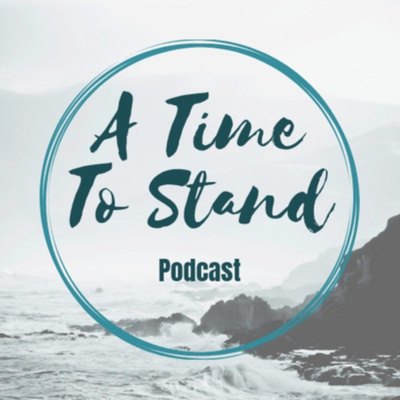
A Time To Stand Podcast
Kelly Schenkoske “Social Emotional Learning – A Closer Look with Dr. Candy Gunther-Brown” Jan 27, 2024
Parent Testimonies
- “Unimaginable Tragedy: The Time to Stand Up to Save our Children has Never Been Clearer” by Undercover Mothers, April 29, 2022
- Profiting off America’s Children: One mom’s Fight to Expose Woke SEL Activists by Matt Wolfson Feb 13, 2024
- Making Students into Subjects: One Mom’s Fight to Defeat Woke SEL Activists by Matt Wolfson, Feb 14, 2024
The Money
1. Government Spending
2. A Sampling of SEL “Non-profits”
- The Aspen Institute National Commission on Social, Emotional and Academic Development.
- Positive Action, Inc – An SEL company that nets $3.6M in annual revenue and employs 21 people, funded by US Government
- Committee for Children
- All it Takes
- Youth, Inc.
- The Yet Mindset
- The SEL Providers Association
- Black SEL via Dangers of the Mind Education Fund
- Institute for Social Emotional Learning
- Think Give
3. How the money flows - Examples of SEL funding in the state of Tennessee:
- $6.5 Million in Grants Awarded in TN to Support Children’s Mental Health (Dec 23, 2021)
- Middle TN schools to receive millions of dollars for mental health (Aug 12, 2022)
- COVID Relief Funds Paid for “Equity Warriors,” CRT Lessons in Public Schools, (Sep 19, 2022)
- Ten Million in Grant Money Up For Grabs in Tennessee Schools To Increase Mental Health Services (Sep 6, 2022)
- Maury County Began Illegal Mental Health on Students, Over $300 Thousand Spent on SEL (Sep 23, 2022)
Global Connections
- Soul Education and SEL: A Pathway to Global Consciousness and Spirituality by Sarah Winters
- UN Program Teaching Kids “Social and Emotional Learning” Actually Seeks to Kill Their Individualism by Kimberly Ells
- “The World Economic Forum, SEL, Transhumanism, Collectivism, and Death of Spirituality” by Jan Greenhawk
- SEL for SDGs by Lisa Logan
- UNESCO: SEL For SDGs
- UNESCO: Education for Sustainable Development
Sampling of SEL Curriculums
Views From The Left
The Training for the New Democracy
Written by Mary Follett (1918)
“The training for the new democracy must be from the cradle — through nursery, school and play, and on and on through every activity of our life. Citizenship is not to be learned in good government classes or current events courses or lessons in civics. It is to be acquired only through those modes of living and acting which shall teach us how to grow the social consciousness. This should be the object of all day school education, of all night school education, of all our supervised recreation, of all our family life, of our club life, of our civic life. When we change our ideas of the relation of the individual to society, our whole system of education changes. What we want to teach is interdependence, that efficiency waits on discipline, that discipline is obedience to the whole of which I am a part. Discipline has been a word long connected with school life — when we know how to teach _social_ discipline, then we shall know how to “teach school.” The object of education is to fit children into the life of the community [1]. Every cooperative method conceivable, therefore, must be used in our schools for this end. It is at school that children should begin to learn group initiative, group responsibility — in other words social functioning. The group process must be learnt by practice. We should therefore teach subjects which require a working together, we should have group recitations, group investigations, and a gradual plan of self-government. Every child must be shown his place in the life that builds and his relation to all others who are building. All the little daily and hourly experiences of his interrelations must be constantly interpreted to him. Individual competition must, of course, disappear. All must see that the test of success is ability to work with others, not to surpass others.”
- The Collaborative for Academic, Social, and Emotional Learning is working to make SEL an integral part of PK-12 education
- Learning for Justice (SPLC) – “Social Justice Standards” for teachers
- Example Page from Salinas Union High School District, California
- Dr. James Comer’s report on the first SEL program in Scientific American
- The SEL “Bible” – “Emotional Intelligence” by Daniel Goleman
- SEL Applications for Home
What You Can Do...
- National Level: Engage your Congressional representatives, Senators and the current administration to stop federal funding of SEL programs, as well as any funding, direct or indirect, to nonprofits which practice SEL. SEL must cease to be profitable for those who push it.
- State Legislatures: Write or call your state representatives and senator, urging them to pass legislation that stop the dissemination of SEL materials via the state Department of Education. Vist the M4LU Legislative Toolkit for more information on how to do this.
- School Districts
- Engage with your school board members and superintendent.
- Research the SEL program used in your school and highlight its radical agenda and lack of beneficial measurable results. Utilize the M4LU FOIA Toolkit to conduct official records request if the information is not publicly available. There is already precedent in Fauquier County, Virginia, where a school board voted to remove their SEL programs due to lack of positive results.
- If your child attends school where SEL is practiced, take steps to opt out of as many SEL programs as possible, including school surveys and screeners. Visit the M4LU Opt-Out Toolkit for more information.
